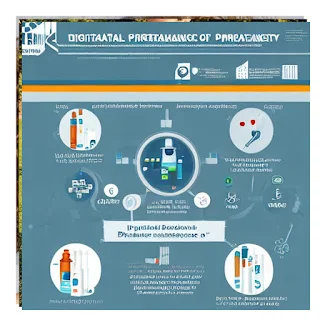Digitalization in the Pharmaceutical Industry
Digitalization is gaining momentum in many areas of the pharmaceutical business. Marcus Michel, CEO of ACG Engineering, discusses the impact of Industry 4.0 in pharmaceutical manufacturing, focusing on digital advancements such as AI, Big Data, and the Industrial Internet of Things (IIoT).
Key Digitalization Trends
PharmTech: What trends do you see in digitalization for pharmaceutical manufacturing equipment?
Michel (ACG): Industry 4.0, also known as the "Fourth Industrial Revolution," is transforming drug manufacturing. Technologies like Big Data, artificial intelligence, cloud computing, and advanced analytics are being employed to address rising complexities, reduce costs, and improve quality. AI-powered smart factories, predictive analytics, and remote machine maintenance are key innovations reshaping the industry.
Challenges in Digitalization
PharmTech: What do you consider the biggest hurdles to adopting these new technologies?
Michel (ACG): Major challenges include infrastructure integration, data sharing, cybersecurity, regulatory compliance, and workforce upskilling. IIoT infrastructure investments and legacy system upgrades are costly but essential to fully unlock the benefits of digital transformation.
Workforce Training
PharmTech: What are the workforce training needs for adopting Industry 4.0 technologies?
Michel (ACG): Successful adoption of Industry 4.0 requires collaboration between equipment manufacturers and pharma companies. Digital literacy, cybersecurity, and the ability to adapt to new technologies are critical skills needed for workforce development.
The Future of Digitalization in Pharma
With the post-pandemic focus on digital technologies, the pharmaceutical industry is poised for full-scale digital adoption. Increased connectivity, real-time analytics, and AI-driven processes are expected to improve productivity, compliance, and manufacturing efficiency.


No comments:
Post a Comment